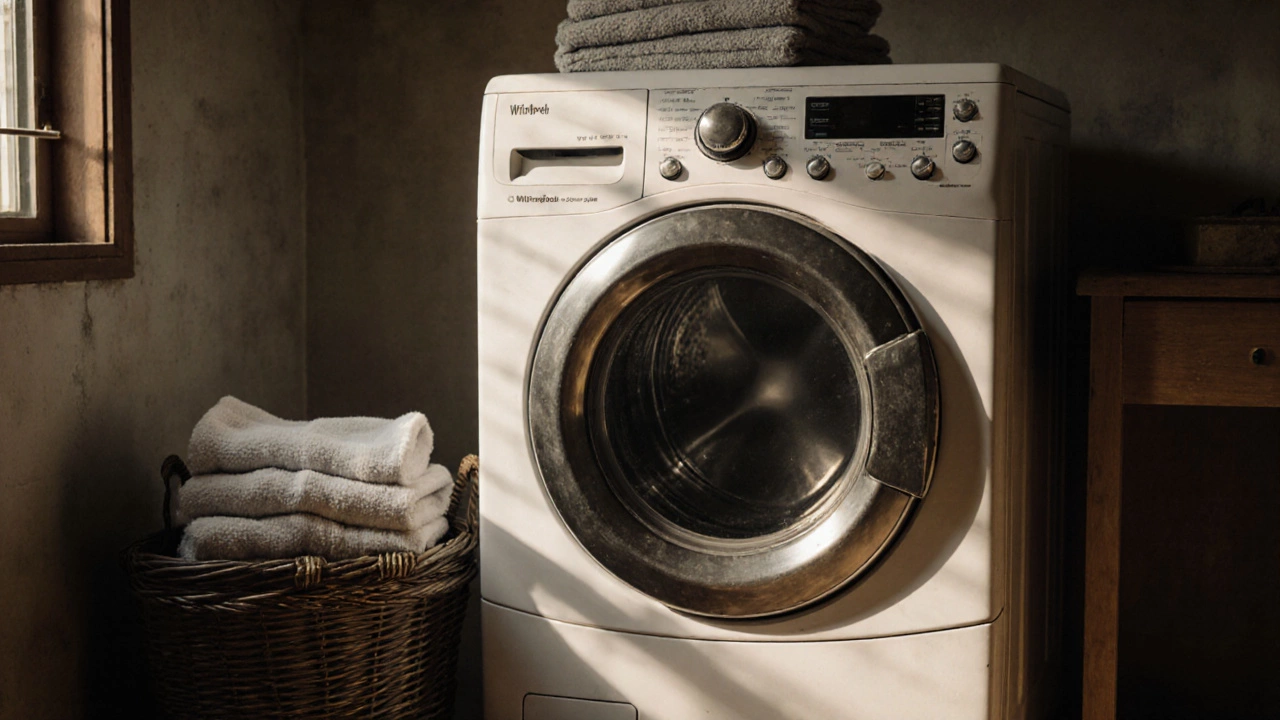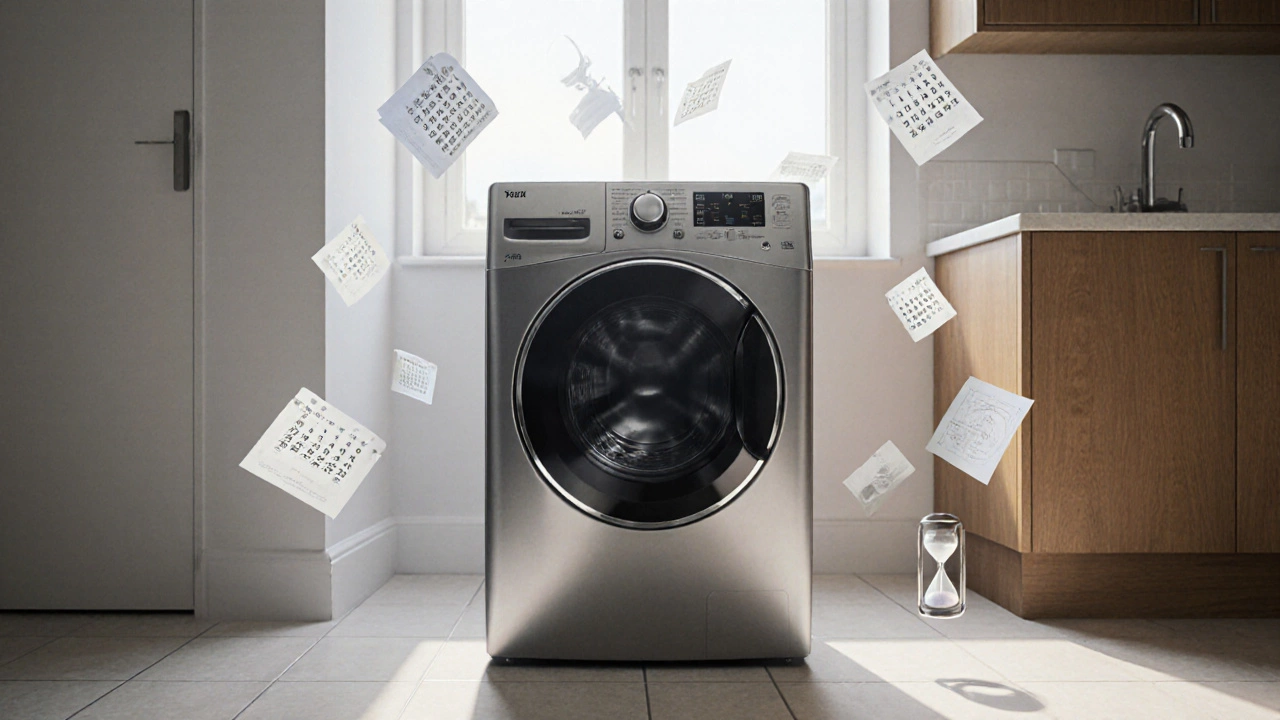Washing Machine Repair – Fast Fixes, Smart Choices, and Simple Care
Got a washer that’s making weird noises or won’t spin? You’re not alone. Most households face a broken washing machine at some point, and the good news is you don’t always need a brand‑new unit. A few right moves can bring the machine back to life, and knowing when to call a pro saves both time and cash.
When to Repair vs. Replace
First thing’s first – figure out if the repair is worth it. A common rule of thumb is the 50 % rule: if the repair cost is more than half the price of a new washer, think about replacement. But there are other factors.
Age matters. A 7‑year‑old washer is often still in its sweet spot. In our article “Is a 7 Year Old Washing Machine Worth Fixing?” we break down typical faults like broken belts, faulty water inlet valves, and drum problems. Most of those can be fixed for under £150, which is a bargain compared to a £500 new model.
On the other hand, if the machine is 12‑plus years old, parts may be harder to find and the risk of recurring issues goes up. In that case, a new, energy‑efficient model could save you money on electricity and water bills.
Don’t forget safety. A leaking pump or a burnt motor can cause water damage or fire hazards. If you spot any sparks, strong odors, or continuous leaks, shut the machine off and call a professional immediately.
Simple Maintenance to Extend Life
Keeping a washer running smoothly is easier than most people think. Here are three habits that add years to its life:
1. Clean the lint filter and door seal. After each load, wipe the rubber door gasket and remove lint from the filter. This prevents mold, bad smells, and seal wear.
2. Use the right detergent. Too much soap creates excess suds, which strain the pump and can lead to leaks. Follow the manufacturer’s dosage guide – a little goes a long way.
3. Balance the load. Overloading or loading heavy items on one side throws the drum off‑balance. The washer’s suspension will wear out faster, causing shaking and noise.
Seasonal care also helps. Run an empty hot‑water cycle with a cup of white vinegar every few months to dissolve mineral buildup in the drum and hoses.
If you notice a slow spin, a noisy drum, or water that doesn’t drain, it’s usually a simple part replacement – belts, pumps, or door switches. Those are quick fixes for most local repair services, including Wells Appliance Repairs.
When you’re ready to decide, check our guide “How Long Should a Washing Machine Last?” for real lifespan numbers based on brand and usage. Knowing the average life expectancy (usually 8‑10 years) helps you weigh repair costs against the remaining useful years.
Bottom line: don’t panic when your washer quits. Assess the age, get a clear quote, and handle easy maintenance yourself. If the repair cost is reasonable and the machine isn’t ancient, you’ll probably end up saving a lot by fixing it instead of replacing it.
What Parts Fail in a Washing Machine? Common Breakdowns and What to Check First
0 Comments
Washing machines fail in predictable ways. Learn which parts break most often-drain pump, door lock, drive belt-and how to fix them before calling a repair technician. Save money and time with this practical guide.
Read MoreWhat's the best brand of washing machine for long-term reliability?
0 Comments
The best washing machine brands for long-term reliability are Speed Queen, Whirlpool, and LG. Avoid cheap models and electronics-heavy designs. Learn what to look for and when to repair vs. replace.
Read MoreLongest Average Washing Machine Lifespan - How Long Do They Really Last?
0 Comments
Discover how long washing machines typically last, factors that extend their life, and when to repair or replace. Practical tips and a lifespan comparison included.
Read MoreDryer Repair: When Not to Bother Fixing Your Tumble Dryer
0 Comments
Deciding whether to fix or ditch your old tumble dryer can be tough. This article breaks down the moments when repairing just isn't worth it, from sky-high costs to safety issues. Get clear signs your dryer’s more trouble than it’s worth and tips for stretching your appliance’s life. Find out how to spot problems and what to do next. Save time, money, and maybe your sanity by knowing when to say goodbye to your dryer.
Read MoreHow Long Should a Washing Machine Last? Real Lifespans & Repair Tips
0 Comments
This article tackles the surprisingly short life of modern washing machines, with insider tips to stretch every year you can out of your washer. We’ll dig into real numbers, the differences between models, and signs it’s time for a fix or a replacement. You’ll get straightforward maintenance moves that actually help. Plus, common myths about washers—busted. If you want to avoid costly breakdowns, this guide is for you.
Read MoreIs a 7 Year Old Washing Machine Worth Fixing? Here’s How to Decide
0 Comments
Wondering if it makes sense to fix your 7 year old washing machine? This article gets straight to the point, exploring the real costs, common breakdowns, and what you should look at before calling a repair guy. We’ll dig into what repair pros say, share some easy troubleshooting tips, and break down when to fix or just swap for a new machine. No misleading advice or tech talk—just honest answers for anyone staring at a broken washer. Read on before you spend a dime.
Read More




